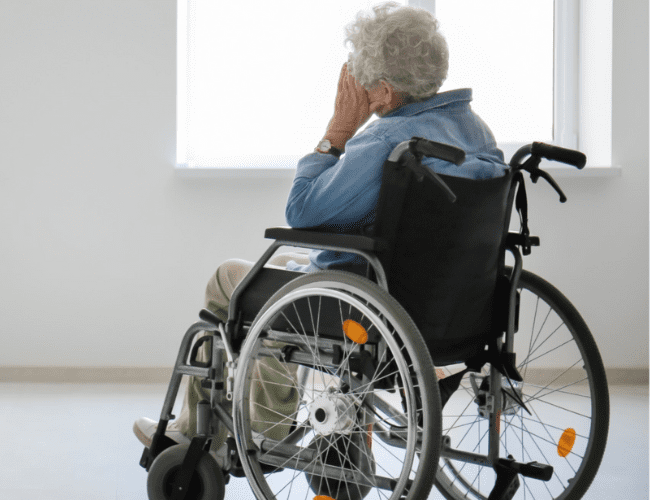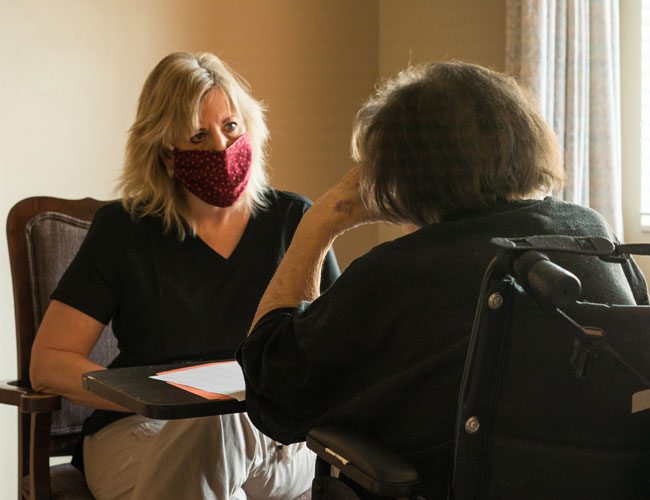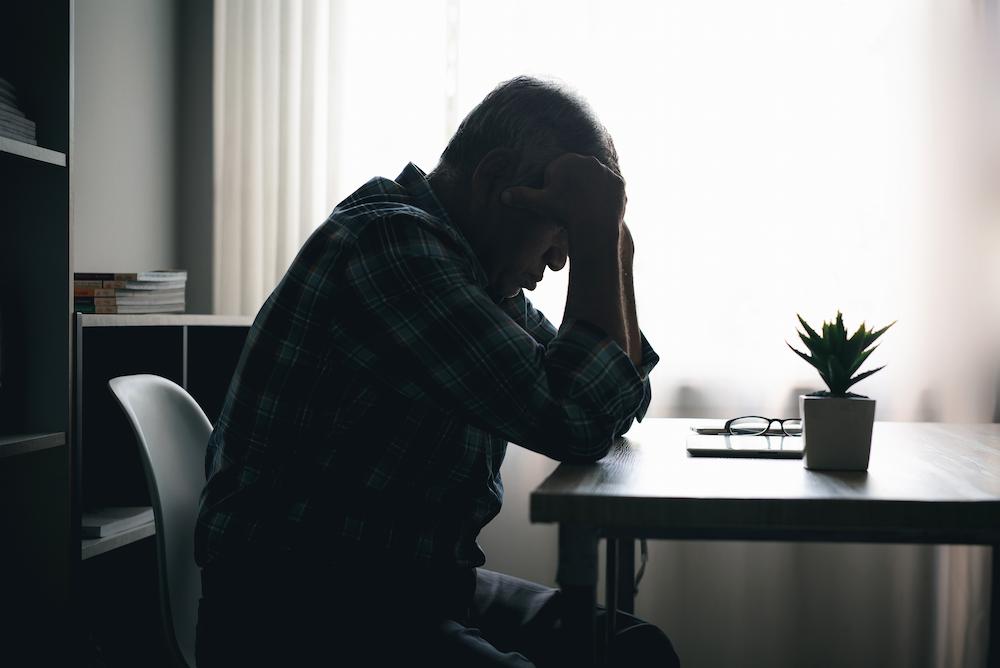What Are the Common Signs of Nursing Home Abuse and Neglect?
Nursing home abuse and neglect can manifest in various ways, often leaving telltale signs that family members and loved ones should be vigilant about. These signs include unexplained injuries like bruises, bedsores, sudden weight loss, changes in behavior, withdrawal, depression, poor personal hygiene, unusual financial transactions, and staff refusing visitors' access. If you suspect any of these signs, it is crucial to take action and seek professional assistance.
Why Should I Consult With a Nursing Home Abuse Attorney?
Consulting with a nursing home abuse and neglect attorney is crucial if you suspect your loved one has been subjected to abuse or neglect. An experienced attorney can guide you through the complex legal process, helping you understand your rights and options. They can assess the situation, gather evidence, and provide the necessary legal representation to hold the responsible parties accountable and seek compensation for the harm done.
How Can Cohen, Feeley, Altemose & Rambo Help With Nursing Home Abuse and Neglect Cases?
Cohen, Feeley, Altemose & Rambo is dedicated to advocating for the rights of nursing home abuse and neglect victims. Our experienced team of
Easton personal injury lawyers has a deep understanding of the laws surrounding elder abuse and has successfully handled numerous cases. We approach each case with empathy, compassion, and a commitment to achieving justice for our clients and their loved ones.
Why Should I Choose Cohen, Feeley, Altemose & Rambo for My Nursing Home Abuse and Neglect Case?
Choosing Cohen, Feeley, Altemose & Rambo for your nursing home abuse and neglect case ensures that you have a team of experienced attorneys by your side. Our firm has a
proven track record of fighting for the rights of victims and achieving favorable outcomes:
Over Half a Billion Dollars in Settlements Recovered for Our Clients
$95 Million: Highest Verdict Obtained
25+ Years of Experience in Nursing Home Abuse & Neglect Cases
We approach each case with a client-centered approach, prioritizing communication, compassion, and effective legal strategies to hold negligent parties accountable.
How Can I Get Started With Cohen, Feeley, Altemose & Rambo for My Nursing Home Abuse Case?
Starting your nursing home abuse case with Cohen, Feeley, Altemose & Rambo is easy. Give us a call, or fill out our
online form to schedule your free, no-obligation consultation. Our legal team will listen to your concerns, assess your case, and provide guidance on the best course of action. Our goal is to provide you with the information and support you need to make informed decisions and seek justice for your loved one.
How Serious of a Problem Is Elder Abuse in Nursing Homes?
Elder abuse in nursing homes is a deeply concerning and, unfortunately, widespread problem. While the full extent of elder abuse and neglect in nursing homes can be challenging to quantify due to underreporting and other factors, available statistics and research highlight the gravity of the issue:
According to the World Health Organization (WHO), an estimated one in six people over the age of 60 have experienced some form of abuse in a community setting within the last 12 months.
In the United States, it is believed that approximately one in ten elderly individuals experiences some form of elder abuse. However, only about one in 14 cases of elder abuse is reported to authorities.
Disturbingly, in some studies, more than 50% of surveyed nursing home staff members admitted to engaging in some form of mistreatment of residents within the past year.
It is important to note that elder abuse and neglect is often underreported. Many victims, due to fear, shame, or cognitive impairments, may not disclose their abuse. Additionally, some cases may go unnoticed by family members or staff, further contributing to underreporting.
Preventing elder abuse requires a multifaceted approach, including increased awareness, robust reporting mechanisms, enhanced training for nursing home staff, and legal actions to hold perpetrators and negligent facilities accountable.
What Are the Causes of Nursing Home Abuse or Neglect?
Nursing home abuse and neglect are deeply troubling issues that can have devastating consequences for elderly residents. Understanding the causes of such mistreatment is crucial in addressing and preventing these situations. While there is no universal cause for nursing home abuse or neglect, several factors can contribute to their occurrence:
Understaffing: One of the most common factors contributing to abuse or neglect in nursing homes is understaffing. When facilities are understaffed, caregivers may struggle to meet the needs of all residents, leading to rushed care, missed tasks, and a lack of proper supervision.
Inadequate Training: Staff members in nursing homes must be adequately trained to provide quality care to residents, especially those with complex medical needs. Insufficient training can result in improper administration of medications, neglect of residents' health needs, and even unintentional harm.
Subpar Hiring Practices: Some nursing homes may not have rigorous hiring practices, which can lead to unqualified or poorly vetted individuals being responsible for the care of vulnerable residents. Inadequate background checks and insufficient screening processes can result in untrustworthy or potentially abusive staff members.
Poor Facility Management: Nursing home abuse can also stem from poor management within the facility. Ineffective leadership, lack of oversight, and a culture that prioritizes profit over resident well-being can create an environment where neglect and abuse may occur unchecked.
Stress and Burnout: Caregivers in nursing homes often face high levels of stress and burnout due to the demanding nature of their work. This stress can sometimes lead to frustration, which may be taken out on residents inappropriately.
Vulnerability of Residents: Many nursing home residents are elderly, frail, and often have limited mobility or cognitive impairments. When residents lack regular contact with family members or advocates, it becomes easier for abuse or neglect to remain hidden.
Addressing the causes of nursing home abuse and neglect requires a concerted effort from all stakeholders, including nursing home administrators, staff, regulatory agencies, and families. Ensuring that nursing homes are adequately staffed, well-managed, and held accountable for any mistreatment is essential. Families can play a vital role in monitoring their loved ones' care, reporting concerns, and seeking legal action when abuse or neglect is suspected. Together, we can work to create a safer and more compassionate environment for our elderly loved ones in nursing homes.
What Are the Different Types of Elder Abuse and Neglect?
Elder abuse and neglect can take many forms, but it is often broken down into five key types:
Physical Abuse: This is one of the most readily apparent forms of elder abuse because of the visible marks and damage it can leave behind.
Mental Abuse: This is a very common form of abuse, but can be more difficult to identify. Maintaining regular contact with your loved one or family member is one of the best ways to identify a change in mental state.
Sexual Abuse: This type of abuse can affect anyone but is most common with people who have some sort of cognitive disability like Alzheimer’s or dementia.
Financial Abuse: According to the National Council on Aging, financial abuse results in approximately losses of $28.3 billion. It’s most frequently perpetrated by someone the victim knows and trusts.
Caregiver Neglect: Failure to act is considered a form of abuse under Pennsylvania law. This type of abuse accounts for an estimated 22% of all reported cases of elder abuse per year, according to the Pennsylvania Department of Aging.
What Is an Example of Neglect in a Nursing Home?
Recognizing signs of elder abuse and neglect requires vigilance and attention. These signs might include unexplained injuries, sudden changes in behavior, withdrawal from social interactions, malnutrition, dehydration, or financial discrepancies. If you suspect any form of mistreatment, it is crucial to take immediate action, consult professionals, and seek legal assistance to safeguard your loved one's well-being.
What Kinds of Nursing Home Abuse and Neglect Cases Do We Handle?
At Cohen, Feeley, Altemose & Rambo, we handle a wide range of nursing home abuse and neglect cases. Our experienced team of elder abuse lawyers has successfully represented clients in cases involving physical abuse, emotional abuse, neglect of basic needs, financial exploitation, and more. We approach each case with dedication and empathy, striving to hold negligent parties accountable and seek justice for our clients.
How Can You Prevent Your Loved One From Becoming a Victim of Nursing Home Abuse or Neglect?
To prevent your loved one from becoming a victim of nursing home abuse or neglect, it is essential to choose a reputable and well-managed facility. Regular visits, open communication with staff, and paying attention to any changes in your loved one's physical or emotional well-being are key. Educating yourself about the signs of abuse and staying involved in your loved one's care can help protect them from harm.
What Should You Do if You Suspect Abuse or See Your Loved One Being Abused?
If you suspect or witness your loved one being abused or neglected, taking immediate action is crucial. Ensure your loved one's safety and well-being by removing them from harm's way if necessary. Document any evidence or signs of abuse, report the incident to the appropriate authorities, and consult with experienced legal professionals like those at Cohen, Feeley, Altemose & Rambo to explore your options for legal action.
How Does the Law Protect Nursing Home Residents From Abuse?
Laws designed to protect nursing home residents from abuse vary by jurisdiction, but generally, they emphasize residents' rights to dignity, respect, and quality care. These laws establish guidelines for the treatment of residents, proper staffing levels, and reporting procedures for suspected abuse. Legal protections exist to ensure the safety and well-being of nursing home residents and hold facilities accountable for any breaches of these regulations.
What Are the Standards of Care Required by the Law of Nursing Homes?
The Federal Nursing Home Reform Act of 1987 lays out specific rights that apply to residents of long-term care facilities that participate in Medicare and Medicaid programs. Among other things, this Act ensures the following rights for these residents:
- The right to be free from abuse, neglect, and exploitation.
- The right to privacy and confidentiality of personal and medical information.
- The right to participate in one's own care and treatment decisions.
- The right to be treated with dignity and respect.
- The right to voice grievances without fear of retaliation.
- The right to have a choice in activities, schedules, and healthcare providers.
- The right to be free from unnecessary restraints.
- The right to access one's own medical records.
- The right to participate in family groups.
- The right to be fully informed about one's health status, treatment, and medications.
This Act provides a foundation for protecting the well-being and dignity of nursing home residents, in addition to state regulations which can vary from state to state.
Are There Any Laws to Protect Senior Citizens in Pennsylvania?
The Pennsylvania Department of Aging oversees the implementation of the Older Adults Protective Services Act (OAPSA), a critical safeguard for those aged 60 and above. Under OAPSA, specific individuals known as mandatory reporters are obligated to report any suspicions of abuse, neglect, exploitation, or abandonment concerning older adults.
This significant legislation goes further by mandating thorough investigations into reported cases and extends legal protections and immunity from both civil and criminal liability to those who make such reports in good faith. This important facet of OAPSA ensures that individuals can report concerns without fear of facing retaliation.
Moreover, OAPSA establishes a comprehensive framework for delivering protective services to older adults facing risks of abuse or neglect. These services encompass essential components such as medical assessments, counseling, legal aid, and various other forms of support.
Why Don’t the Elderly Report Abuse, and What Can You Do About It?
Elderly individuals often hesitate to report abuse due to fear, shame, or a belief that their complaints won't be taken seriously. Loved ones and caregivers must create a safe and supportive environment for victims to come forward. If you suspect abuse or neglect, listen carefully to your loved one, document any signs, and consult with professionals. A compassionate approach and legal action, if necessary, can empower victims and hold perpetrators accountable.
When Is It Appropriate to Sue a Nursing Home for Abuse and Neglect?
Suing a nursing home may be appropriate when there is evidence of negligence, abuse, or neglect that has resulted in harm to a resident. Common grounds for lawsuits include unexplained injuries, inadequate care leading to health deterioration, and violations of residents' rights. Consulting with experienced elder abuse attorneys like those at Cohen, Feeley, Altemose & Rambo can help determine if legal action is warranted and guide you through the process.
Who Can Bring a Lawsuit for Elder Abuse or Neglect?
Lawsuits for elder abuse or neglect can be brought by the victim themselves if they can do so. If the victim lacks capacity, their legal representative or family member can file a lawsuit on their behalf. Additionally, if the victim has passed away due to abuse or neglect, their surviving family members may bring a
wrongful death lawsuit. Consulting with legal experts can clarify who is eligible to bring a lawsuit in a specific case.
How Do I Report Nursing Home Abuse or Neglect?
When you suspect abuse or neglect in a nursing home, taking swift and systematic action is vital to safeguard the well-being and legal rights of the affected individual. As a law firm skilled in handling these types of cases, we recommend the following steps:
- Collect all relevant evidence that supports your concerns regarding abuse or neglect. This may include medical records, photographs showing injuries or unsanitary conditions, and statements from witnesses.
- Submit a formal, written report outlining your concerns to the administrative team of the nursing home. Keep copies of all your communications and request written acknowledgment of your report for your records.
- If the nursing home's management fails to address the situation adequately or immediate intervention is required, get in touch with relevant authorities such as the Department of Health, Adult Protective Services, or local law enforcement agencies.
- If you anticipate the need for legal action, consult with the experienced team at Cohen, Feeley, Altemose & Rambo. We will assist in preserving all available legal remedies and protecting the rights of the individuals involved.








